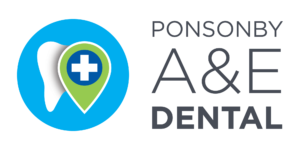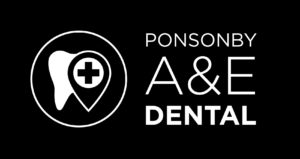
Dental Emergency
Toothache:
This is the most common emergency and is usually related to changes in the pulp of the tooth:
Reversible pulpitis – Leads to the pain of short duration and is mild to moderate in severity and can be triggered by changes in temperature and with sweet foods. It usually doesn’t cause disturbed sleep, and typically requires a trigger. This type of toothache is commonly well localised, and the patient can tell which tooth it is. Removal of the decay followed by a filling or crown preserves the vitality of the tooth.
Irreversible pulpitis – Leads to dental pain that can last for minutes to hours without a trigger and can wake you up from your sleep. Pain can be very intense, and painkillers will not be sufficient. You may find pain on biting, and occasionally pain being relieved with cold water. The tooth will need to be extracted unless a root canal treatment is performed.
Left untreated both of these types of pulpitis can progress to form an abscess at the tip of the root which can lead to swellings and raised temperatures. In extreme circumstances, hospitalisation may be required.
Other causes of toothache include dentinal sensitivity which can arise from gum disease, chipped/lost dental fillings, abrasion and gum recession.
Traumatic injury or fractured tooth
Teeth may break for a variety of reasons including dental decay, trauma or on biting hard or sticky food. Early intervention impacts the outcome of the unfortunate incident.
Impacted wisdom teeth:
The gum overlying wisdom teeth can become inflamed and infected. In its early stages, it may be possible to treat the discomfort by cleaning and irrigation with some antiseptic solution.
If left untreated, it may progress to becoming a local infection, causing localised swelling, difficulty in opening the mouth and/or swallowing- at this stage, antibiotics will be required.
In severe cases, the patient may need hospitalisation. It is imperative to arrange an appointment immediately, and you will probably require antibiotics to control the infection in the first instance unless it is clinically appropriate to remove the offending tooth.
Lost fillings or crowns:
It is essential to see a dentist as soon as possible if you lose a filling or a crown. It may or may not have pain or sensitivity, but the longer you leave a tooth bare, the higher the chances of you developing a problem, or exacerbating an existing problem. The loss of a filling or crown may also have occurred as a result of underlying issues, like dental decay.
If there is no decay, then your existing crown can be recemented back at the same visit.
Lost fillings will usually require replacement of the filling, you may have the option of a temporary or definitive filling being placed.
Bleeding or pain after extraction:
Discomfort, tenderness and swelling should be expected for up to 3-5 days after an extraction This response well to anti-inflammatories and other analgesics.
If the pain is intense and increases over some time after extraction, then you might have a dry socket. In a dry socket, the blood clot which fills the socket disintegrates leading to exposed bone. The exposed bone requires further treatment and sometimes antibiotics to help heal uneventfully.
Need to Know
Duration
- 30-60 minutes.
Benefits
- Relief of pain.
Related Doctors
Frequently Asked Questions
If you answered yes to any of these questions, you might be having a dental emergency and should call your dentist immediately. It’s important to describe to your dentist exactly what has happened and what you are feeling.
Is it a Dental Emergency?
Smoothing a chipped tooth, re-cementing a crown that is not causing pain and composite bonding to repair a tooth are not dental emergencies. Typically, such problems can be dealt with during your dentist’s regular office hours.
If you experience extreme pain caused by hot or warm foods or beverages, try drinking ice water. It might relieve the pain. Sip on ice water and hold some in your mouth until you see the dentist.
- Trouble breathing or swallowing
- Deep facial cuts profuse bleeding
- A dislocated or broken jawbone
If you’re not sure where to go, don’t hesitate to call our surgery first and ask. If you do need to go to the ER, schedule an appointment with us afterward so we can determine whether further treatment is required to restore your smile


